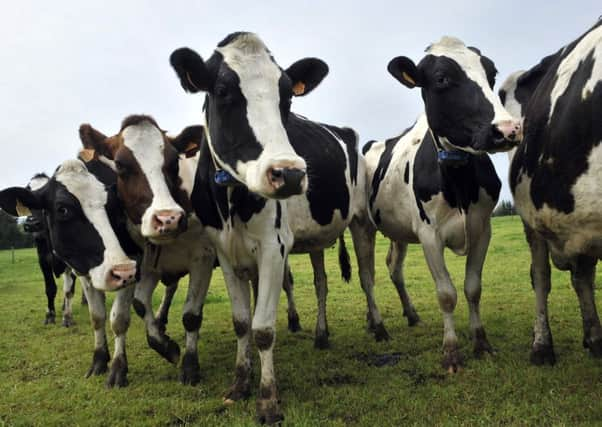Miller warns of Common Agricultural Policy row


With the civil servants charged with implementing the new package believed to be favouring keeping things simple – which would make delivery more straightforward – NFU Scotland president Nigel Miller has claimed that such an approach would short-change many Scottish farmers.
Speaking in Perth on Thursday night, Miller said that it was crucial that support was properly targeted if major disruption which could have desperate consequences for many in the industry was to be avoided. He said that even although it might mean making things more complicated, it was crucial that all parties did their best to ensure support was targeted fairly.
Advertisement
Hide AdAdvertisement
Hide AdBut he added that Scotland had fallen well behind the rest of the UK in finalising these measures.
Based on the feedback from the union’s round of CAP reform meetings, he outlined three of the major areas that needed to be addressed:
“First of all we need to get a workable answer to the active farmer test to ensure that payments go to the right people,” said Miller adding that the Commission’s ruling that stocking densities could not be used had created huge problems.
He said that the use of economic indicators might be one approach, with a “trading test” which looked at the purchase of inputs or the sale of farm produce providing evidence of activity. Keeping a potential 1.5 million extra hectares which had not qualified for payments in the past out of the equation was crucial.
“And although the allocation of entitlements will be based on IACS claims made in 2015 there is the option of limiting this to what was claimed in 2013” said Miller.
Stating that it wasn’t a route anyone would choose to go down, he said it was a pragmatic approach which would discourage “land grabs” by large-scale land owners and those involved in grass lets – but admitted that a robust national reserve would be required to address any anomalies created.
Another major concern was finding a means of limiting over- and under-compensation of producers on rough grazing: “And although the Scottish Government seems determined to push ahead with only one RGR region we simply have to get something smarter that will better target the support.”
The speed of transition to the new system was another area of considerable concern, especially for the many who stood to lose upwards of 40 per cent of their support.